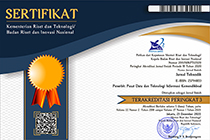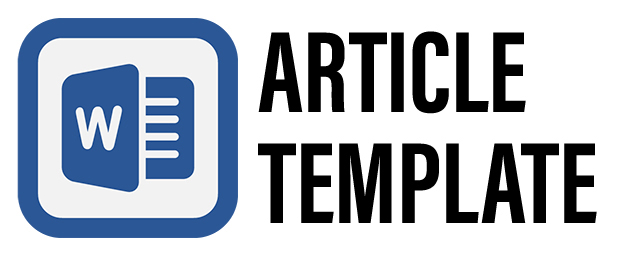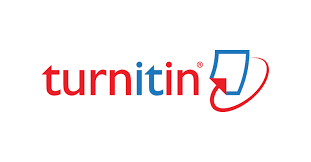FACEBOOK APPLICATION AS ELECTRONIC PORTFOLIO IN SPEAKING ASSESSMENT OF ENGLISH AS A FOREIGN LANGUAGE: A Case Study of Indonesian Junior High School Students
Aplikasi Facebook sebagai Portofolio Elektronik dalam Penilaian Berbicara Bahasa Inggris sebagai Bahasa Asing: Studi Kasus pada Siswa Sekolah Menengah Pertama di Indonesia
DOI:
https://doi.org/10.32550/teknodik.vi.1119Keywords:
Facebook, Electronic portfolio, EFL speaking, authentic assessment (portfolio), language assessmentAbstract
This qualitative study investigates the use of Facebook as an electronic portfolio (e-portfolio) for assessing English as a Foreign Language (EFL) speaking proficiency. It investigates whether Facebook as an e-portfolio helps students assess their speaking skills due limited time in the class. In particular, the focus is on the students' engagement in speaking tasks and their views on the e-portfolio-based evaluation. The study took place for three months in a private junior high school in Jakarta which consisted of 20 students. Classroom observations, questionnaires, and reflective journals were employed to collect the data. Using Kose's coding strategy (2006), the data was transcribed and coded. This unveiled the students' strategies for using Facebook to document speaking activities, with most relying on memorization (54%). The research also affirmed the effectiveness of Facebook as an e-portfolio instrument and found that Facebook is integrated well, giving positive results in operational descriptions, compatibility, and evaluative judgments. While some students perceived the benefits of adopting the e-portfolio via Facebook, the overall feedback tends to be favorable acceptance and appreciation of the tool. The feedback highlights the significance of teachers' digital proficiency in guiding students, given the lack of a comprehensive scoring system, so that emphasizing the necessity for a structured-speaking rubrics for consistent evaluations. This study highlights the use of Facebook as an e-portfolio tool by providing useful insights into students' strategies, motivation, and perceptions, suggesting implications for language learning through technology-mediated assessment.
Penelitian kualitatif ini menyelidiki penggunaan Facebook sebagai elektronik portofolio (e-portofolio) untuk menilai kemahiran berbicara Bahasa Inggris sebagai Bahasa Asing (EFL). Penelitian ini bertujuan untuk membuktikan apakah aplikasi Facebook sebagai e-portofolio dapat menilai kemampuan berbicara Bahasa inggris siswa yang bermasalah dalam keterbatarasan waktu dalam kelas Secara khusus. Fokus penelitian ini adalah keterlibatan siswa dalam tugas-tugas berbicara dan pandangan mereka terhadap evaluasi berbasis e-portofolio. Penelitian ini berlangsung selama tiga bulan dan dilakukan di sebuah sekolah menengah pertama swasta di Jakarta yang terdiri dari 20 orang siswa. Observasi kelas, kuesioner, dan jurnal reflektif digunakan untuk mengumpulkan data. Dengan menggunakan strategi pengkodean Kose (2006), data ditranskrip dan diberi kode. Hal ini mengungkap strategi siswa dalam menggunakan Facebook untuk mendokumentasikan kegiatan berbicara, dengan sebagian besar mengandalkan hafalan (54%). Penelitian ini juga menegaskan keefektifan Facebook sebagai instrumen e-portofolio dan menemukan bahwa Facebook terintegrasi dengan baik, memberikan hasil yang positif dalam deskripsi operasional, kompatibilitas, dan penilaian evaluatif. Meskipun beberapa siswa merasakan manfaat mengadopsi e-portofolio melalui Facebook, umpan balik secara keseluruhan condong ke arah penerimaan yang baik dan apresiasi terhadap alat tersebut. Umpan balik tersebut menyoroti pentingnya kemahiran digital guru dalam membimbing siswa, mengingat kurangnya sistem penilaian yang komprehensif, sehingga menekankan perlunya rubrik penilaian yang terstruktur untuk evaluasi yang konsisten. Studi ini menyoroti penggunaan Facebook sebagai alat e-portofolio dengan memberikan wawasan yang berguna tentang strategi, motivasi, dan persepsi siswa, serta memberikan implikasi untuk pembelajaran bahasa melalui penilaian yang dimediasi oleh teknologi.
References
Aburumman, Manal Fahid. (2021). E-Assessment of Students’ Activities During Covid-19 Pandemic: Challenges, Advantages, and Disadvantages. International Journal of Contemporary Management and Information Technology (IJCMIT) Volume 2, No 1, 2021, pp. 1-7. e-ISSN: : 2773-5036
Asma, Nadi, Prof. Diah Kristina, M. A, Ph.D & Dr. Sumardi, M. Hum. (2022). E-Portfolio for English Speaking: A Case Study Of English Teacher’s Strategy In Improving Students’ Speaking Skill During School Closure Caused By Pandemic. International Journal of Education and Social Science Research (IJESSR) Vol. 5, Issue.3, May-June 2022, page no. 177-189. ISSN 2581-5148.
Biglari, Abbas, Siros Izadpanah & Ehsan Namaziandost. (2021). The Effect of Portfolio Assessment on Iranian EFL Learners’ Autonomy and Writing Skills. Hindawi Education Research International Volume 2021, Article ID 4106882.
BPS, Indonesia. (2024). Statistical Yearbook of Indonesia 2024, Volume 52, 2024. BPS-Statistics Indonesia. ISSN 0126-2912
Cepik, Saban; Yastibas, A. (2013). The Use of e-portfolio to Improve English Speaking Skill of Turkish EFL Learners. Anthropologist, 16 (1–2), 307–317.
Chang, Siew Lee & Muhammad Kamarul Kabilan. (2024). Using Social Media as e Portfolios to Support Learning in Higher Education: A Literature Analysis. Journal of Computing in Higher Education (2024) 36:1–28.
Creswell, J. W. (2012). Qualitative Inquiry and Research Design Choosing among Five Approaches (3rd ed.). Los Angeles, CA: SAGE Publications.
Dardjowidjojo, S. (2003). Soekamto, K. E. (Ed.) Rampai Bahasa, Pendidikan dan Budaya: Kumpulan Esai Soenjono Dardjowidjojo (pp. 41–50). Jakarta: Yayasan obor Indonesia.
Darwanto, Bambang Agus, Herman dwi Surjono, & Dyah Setyowati Ciptaningrum. (2020). Newly-innovated E-portfolio to Promote Dynamic Collective Evaluation on Students' Extramural English Written Artifacts. Computer-Assisted Language Learning Electronic Journal, 21(2), 2020, 32-51.
Harris, D. P. (1969). Testing English as a Second Language. New York: McGraw-Hill.
Harun, Raja Nor Safinas, Mohd Hafiz Hanif & Goh Swee Choo. (2021). The Pedagogical Affordances of E-Portfolio in Learning How to Teach: A Systematic Review. Studies in English Language and Education, 8(1), 1-15, 2021. E-ISSN 2461-0275.
Heng-Tsung, & Huang, D. (2010). Effects of Electronic Portfolios on EFL Oral Performance. Asian EFL Journal, 192–212.
Hubbard, P. I. (2006). Calling on CALL: From Theory and Research to New Directions in Foreign Language Teaching (L. D. & N. A. (Eds.) (ed.); Evaluating). San Marcos, TX: CALICO.
Kose, N. (2006). Effects of Portfolio Implementation and Assessment on Critical Reading and Learner Autonomy of ELT Students. Cukurova University.
Kroll, B. (1990). Second Language Writing: Research Insights for the Classroom. Cambridge University Press.
Kusuma, I Putu Indra & Budi Waluyo. (2023). Enacting E-portfolios in Online English-Speaking Courses: Speaking Performance and Self-efficacy. Iranian Journal of Language Teaching Research 11(1), (Jan, 2023). Pp. 75-95.
Kusuma, I Putu Indra, Ni Wayan Surya Mahayanti, Luh Diah Surya Adnyani, & Luh Gede Rahayu Budiarta. (2021). Incorporating E-portfolio with Flipped Classrooms: An in-depth Analysis of Students’ Speaking Performance and Learning Engagement. The JALT CALL Journal issn 1832-4215, Vol. 17, No.2. Pages 93–111.
Laksana, I Putu Yoga Lasana et al.. (2021). Employing e-portfolio based Learning in Improving Self-efficacy of Student’s Speaking Ability. Journal of Applied Studies in Language, Volume 5 Issue 2 (Dec 2021), p. 229—236. e-issn 2615-4706.
Lasminiar, Putri. (2022). A Teacher’s Experiences on the Use of E-Portfolio as Students’ Portfolio Assessment in Teaching Speaking: A Narrative Inquiry. JURNAL BASICEDU Volume 6 Nomor 3 Tahun 2022. pp 3858 – 3866.
Levelt, M., & Roelofs. (1999). A Theory of Lexical Access in Speech Production. Journal Behavioral and Brain Sciences, 22, 1–77.
Levitt, H. M. (2021). Qualitative Generalization, not to the Population but to the Phenomenon: Reconceptualizing Variation in Qualitative Research. Qualitative Psychology, 8(1), 95–110.
Loan, P. T., & Tin, D. T. (2016). The Effect of Speaking E-portfolios on Learner Autonomy for non-English Major Students at Petro Vietnam University. Hirao School of Management Review, 6, 106 – 169.
Lorenzo, G., & Ittelson, J. (2005). An Overview of e-portfolios. Educause Learning Initiative, 1(1), 1–27.
Mathur, Madhuri. (2022). Impact of ePortfolio Assessment as an Instructional Strategy on Students’ Academic Speaking Skills: An Experimental Study. Computer Assisted Language Learning Electronic Journal (CALL-EJ), 23(3), 1-23, 2022.
Muin, Fathul Chalim & Hafidah. (2021). Students' Perceptions on the Use of E-Portfolio for Learning Assessment. Al- Ishlah: Jurnal Pendidikan, June 2021, 13 (1), P. 497-503.
Muhamad, Nabilah. (2023). Ada 198 Juta Pengguna Facebook di Indonesia, Gen Z Mendominasi. Accessed on Juni, 26th 2024. https://databoks.katadata.co.id/datapublish/2023/11/22/ada-198-juta-pengguna-facebook-di-indonesia-gen-z-mendominasi.
Razali, Noor Fazlina Yati Mat, Jamilah Hamid & Haslinda Hashim. (2022). E-Portfolio as an Assessment Tool in Teaching and Learning: A Survey of Teacher’s Perceptions. Journal of Contemporary Social Science and Education Studies (JOCSSES), Vol 2, Issue 2 (2022).
Jae, Eun Oh, Yuet Kai Chan, & Kyulee Viviane Kim. (2020). Social Media and E-Portfolios: Impacting Design Students’ Motivation Through Project-Based Learning. IAFOR Journal of Education: Undergraduate Education Volume 8 – Issue 3 – 2020.
Sa’diyah, Aminatus. (2020). Alternative Assessment Practices and Difficulties on EFL Students' Speaking Skill. Proceedings of the International Joint Conference on Arts and Humanities (IJCAH 2020), Advances in Social Science, Education and Humanities Research, volume 491, 810 – 815.
Safari, M., & Koosha, M. (2010). Instructional Efficacy of Portfolio for Assessing Iranian EFL Learners’ Speaking Ability. English Language Teaching, 9(3), 102–116.
Solihati, N., & Mulyono, H. (2017). A Hybrid Classroom Instruction in Second Language Teacher Education (SLTE): A Critical Reflection of Teacher Educators. International Journal of Emerging Technologies in Learning, 12(5).
Subhees, N. P. & Satya Sundar Sethy. (2020). Learning through Assessment and Feedback Practices: A Critical Review of Engineering Education Settings. EURASIA Journal of Mathematics, Science and Technology Education, 2020, 16(3), em1829. ISSN:1305-8223 (online).
Suryoputro, G. (2015). Tailor made teacher strategies and peer assessment for EFL writing. Journal of Language and Literature, 6(4).
TL., R. (2011). Making Learning Visible and Meaningful through Electronic Portfolios. Change, 6–13.
Yatibas, A. E., & Yatibas, G. C. (2015). The Use of E-portfolio-based Assessment to Develop Students’ Self-regulated Learning in English Language Teaching. IETC 2014,3–13
Zheng, Yan & Jessie S. Barrot. (2022). Social Media as an e-portfolio Platform: Effects on L2 Learners’ Speaking Performance. Language Learning & Technology 2022, Volume 26, Issue 1. ISSN 1094-3501 CC BY-NC-ND. pp. 1–19.
Downloads
Published
How to Cite
Issue
Section
Citation Check
License

This work is licensed under a Creative Commons Attribution-NonCommercial-ShareAlike 4.0 International License.
Please download and complete the Form, Copyright Transfer, and Ethics Statement Form. The following is provided at the time of submitting the text (Upload Additional Files):










